TPA Air Technology
For Data Center
Powerful IT infrastructures need clean air
to avoid downtime and data losses!

Protect your Environment and Investment
Data Centers serve as specialized environments to accommodate computer systems, infrastructure, and related elements like IT, storage, and telecommunications systems.
Modern Data Centers are facing serious tasks on airborne contaminants especially in dusty outdoor environments:
Particulates - These solid particles that are suspended in the air and can be made up of dust, pollen, fibers or smoke.
Gases and Vapors - These gases that have been dissolved in a liquid or solid. Source are cleaning products, paints, adhesives or office equipment.
Biological contaminants - These are living organisms as bacteria and mold that attack metals and can cause illness.
There may also be other contaminants present in the air, such as lead, asbestos, mercury and whiskers, small metal filaments.
Special Tasks in Data Centers
Especially in hot, humid and dusty areas like the middle east the standards for Data Centers are not enough. Fresh air handling units, necessary for humans working in Data Centers, are filtering outdoor air never by 100%. The remaining percentage of particles accumulate in dusty areas to a remarkable amount, cycling in the server room and the ducts of the A/C. The result is:
Heat Build-up - Dust acts as an insulator, impeding airflow through cooling systems. This lead to increased operating temperatures, reducing the efficiency and lifespan of sensitive electronic components.
Reduced Airflow - Accumulated dust restricts airflow in server racks, hinders heat dissipation, and causes thermal stress on hardware components. This leads to performance degradation and, in some cases, system failure.
Corrosion and Short Circuits - Dust particles often contain conductive materials such as metal ions or salts that can cause corrosion or short circuits, causing permanent damage to servers and costly downtime.
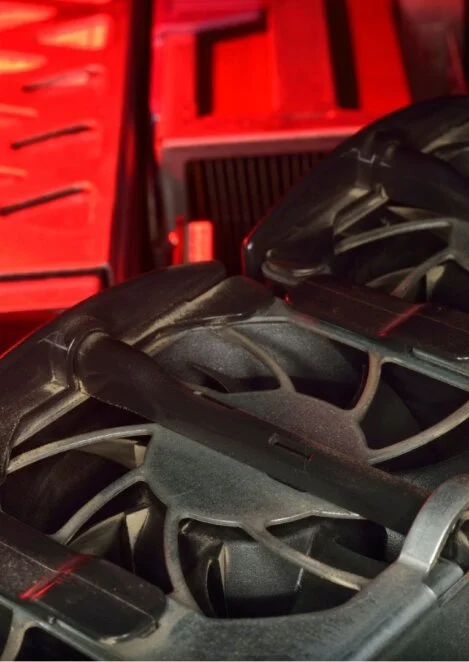
AHSRAE Guidelines for Air Quality
The American Society of Heating and Refrigeration and Air Conditioning Engineers (ASHRAE) TC 9.9 is a technical committee within ASHRAE which focuses on data center environments.
TC 9.9 recognizes the importance of air quality within the data center. They encourage the monitoring of air quality, and advocate for an effective air quality management plan.
In 2011 ASHRAE published a comprehensive guide which details strategies for air filtration, leak detection, and monitoring, titled Particulate and Gaseous Contamination Guidelines for Data Centers.
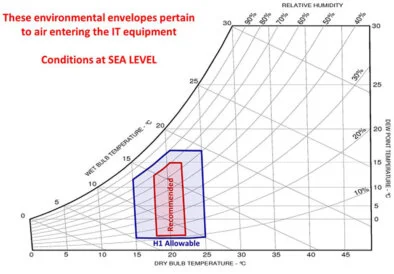
Optimal Air Quality Considerations
Optimal air quality is not only about protecting the servers and other electronic equipment from failure. There are other factors to consider.
Reliability: The primary concern of any data center operator is uptime. Poor air quality can result in downtime, disrupting critical services and resulting in financial losses.
Efficiency: Clean air allows for efficient cooling and reduced energy consumption which equates to lowering cleaning cycles and total operational costs.
Security: Electrically charged dust particles can cause signal disturbances, data losses, short circuits and power failures, compromising not only the hardware but important data.
Fire Protection: When dust particles end up on or near heat-producing hardware in a Data Center, the equipment can ignite. The result is a Data Center fire.
Human Health: Although there are common standards for indoor air quality, there is a proven links between human health and indoor air quality (IAQ). Symptoms such as headache, fatigue, long term respiratory illness and reduction of cognitive function have all been attributed to poor IAQ standards.
Dust Protection
Electrostatically charged dust sticks to electronic components and insulates them. The result is a reduced cooling with a higher energy consumption and the risk of short circuiting of components caused by conductive dust particles.
Highly ventilated areas are known to serve a potential risk of fire.
Dust, particularly conductive dust, can accumulate on components, potentially causing short circuits or overheating that might ignite a fire.
Even a very minor outbreak may set off the fire suppression system resulting in an incredible damage and long disruption of operation.
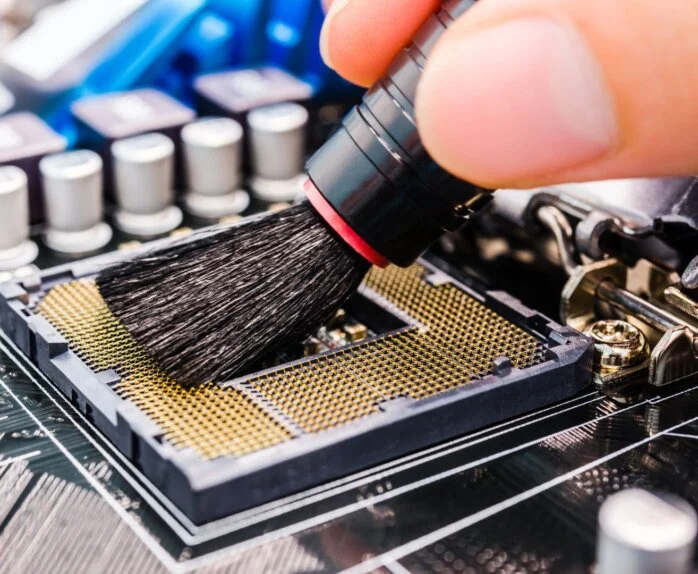
Biological Protection
Data Centers are equipped with air handling units to regulate and monitor room temperature and humidity. Even small amount of dust provide a food source for growing mold.
Naturally occurring and practically everywhere, mold spreads via microscopic spores. These tiny particles are light enough to disperse widely before settling on surfaces. If a spore lands where it finds a reliable source a new colony will grow.
Mold on circuit board can lead to short circuits. If not cured early enough, the accumulation of mold will damage the equipment and leads to interruption of business operations.
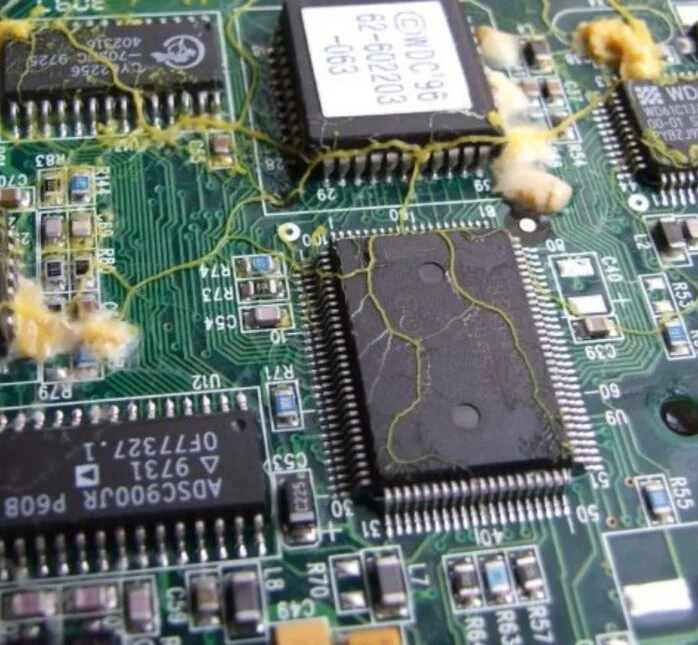
Powerful IT infrastructures need clean air to avoid downtime and data losses
Critical Importance of Indoor Air Quality (IAQ)
Data Centers have unique requirements and strict regulations compared to typical commercial sites. Particulate and corrosive gaseous pollutants have become a serious problem for Data Centers and server rooms. In some cases, corrosion of electronic components has resulted in catastrophic failures of equipment, due to environmental conditions.
These pollutants enter data centers in a variety of ways, including external ventilation systems, adjacent indoor areas, and people entering and exiting the facility or critical areas.
There’s no time for downtime at a Data Centre!
Keep your precious equipment – and people’s businesses – up and running with high-efficiency air filtration solutions.

Why Indoor Air Quality is Mission Critical in Data Centers
Today, more than ever, mission-critical data centers require high levels of safety and reliability. Indoor air quality plays a critical role in the full functionality of Data Centers, server racks and electronic components. Particulate and gaseous pollutants pose a serious threat to this safety. These pollutants can lead to equipment failure, total outages or, in the worst case, data loss.
Risks Include:
• Corrosion of components by dust containing sulfurous gases
• Obstruction of cooling air flow and deformation of surfaces
• Changes in electrical impedance, circuit failure and burnout with the associated risk of fire.
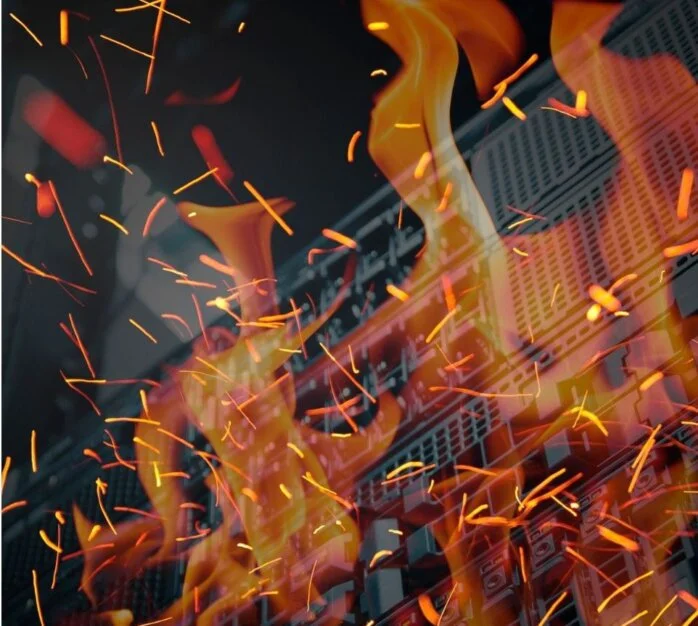
Main Tasks on Air Quality
1. Protect from Dust and other Contaminants and monitor the results
Dust and other pollutants pose a special risk to Data Center Equipment.
TPA Air Sanitizers are the only air sanitation solution on the market that effectively filter normal dust down to nanometer particle size in one filter system, designed to operate at highest airflow volume with lowest sound pressure level at the same time. Air Quality Recorder track and record the result, monitoring particle levels and other important air parameters for the long-term performance.
2. Reduce Maintanance, Man-Power and expensive Spare-Parts
In its class, TPA Air Sanitizer have the highest dust-collection capacity on the market, offering a cost-effective, eco-friendly solution to provide cleanest air. In addition, TPA reduces the needs to frequently change filters in servers and other IT equipment.
3. Avoid Downtime
Particulate and corrosive gaseous pollutants have become a serious problem for Data Centers and server rooms. Eliminating corrosive pollutants is mission critical to the operational reliability.
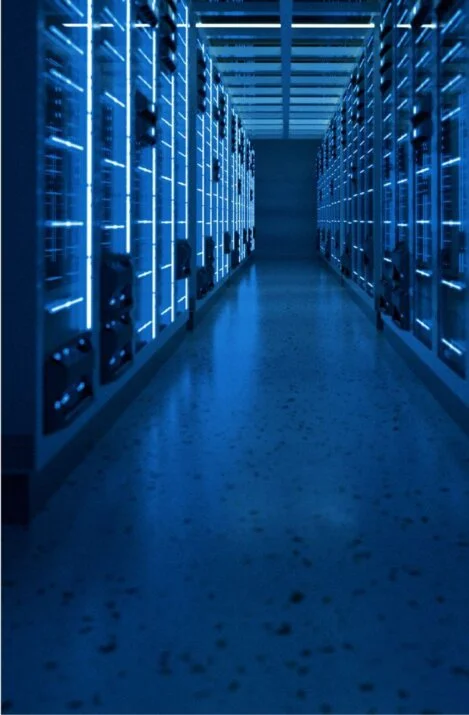
Decentralised solution
As Dust as well as microbiological particles accumulate in units with high airflow, A/C, HVAC and connected ducts are a permanent source. In addition the airflow of these units is tailored to the cooling requirements of the IT equipment.
To effectively clean the air from dust and eliminate phatogens a decentralised solution with high permanent air flow gives the best result.
Filtering not only dust but also particles down to nanometer size results in a remarkable amount of collected pollutants.
An easily accessible service-friendly solution enables regular maintenance and guarantees the cleanest air.
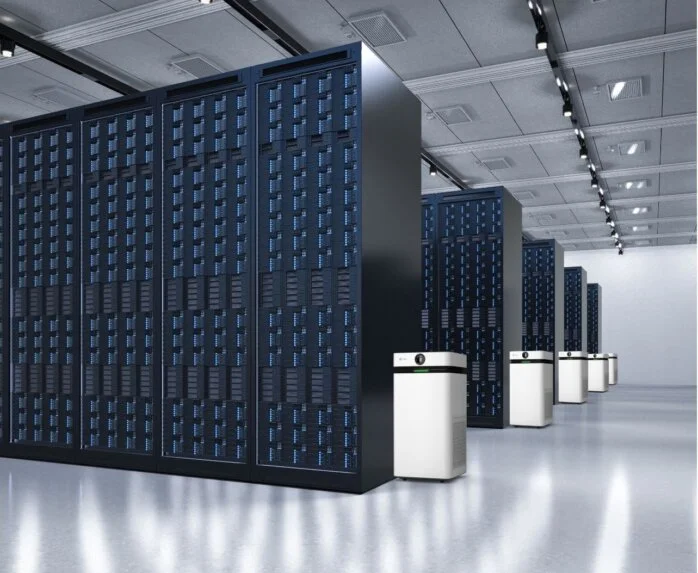
Extended Monitoring
Monitoring humidity and temperature in Data Centers is not enough. An extensive measurement and recording of all critical indoor air quality parameters give the security to operate in an optimal safe range to protect your investment.
TPA provides a certified solution to monitor your indoor air quality on a long-term. Extensive reports provide the proof of extended security.

TPA Air Sanitizer
• Prevent equipment downtime and failure.
• Improve fire resistance with flame-retardant air filters.
• Protect against electromagnetic interference that causes data errors and equipment failures.
• Increase energy efficiency and lower energy costs.
• Reduce your carbon footprint with environmentally friendly, high energy-efficiency rated products that comply with all international standards
Advanced filtration solutions are available to reduce air pollutants and maximise airflow to keep server and IT-Equipment running as intended.
Properly designed filtration systems protect from risks of moisture, dust and various air pollutants - even near the coast or in highly polluted environments.
TPA offers Data Centers a high-performance and energy-efficient air treatment solution to stay competitive.
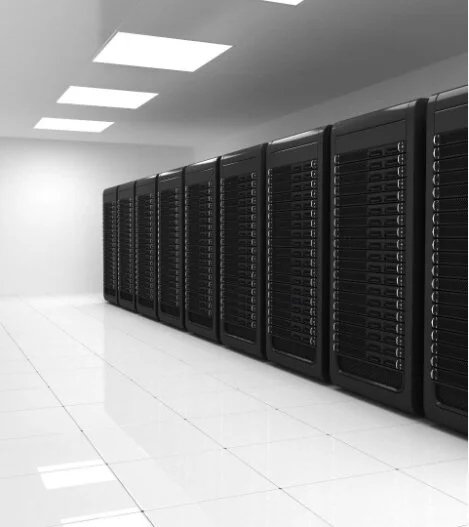
Contact Us
Schedule a consultation with our experts to learn how our air sanitation technology can transform your Data Center into a dust free clean space.
